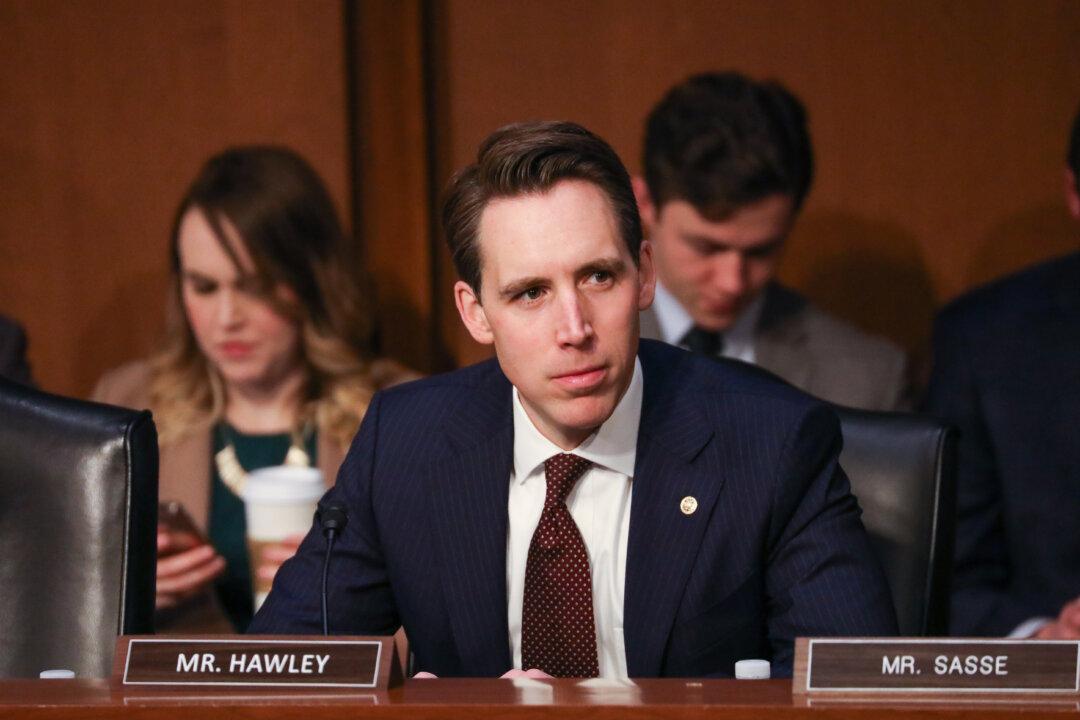Sen. Josh Hawley (R-Mo.) wants Attorney General William Barr to investigate alleged violations by state and local officials of religious worshipers’ First Amendment right to assemble while allowing demonstrators protesting George Floyd’s death to gather without regard to public health measures imposed to curb the CCP virus.
“State officials have violated the free speech and free exercise rights of religious Americans by treating religious gatherings and speech differently than the speech and mass gatherings of protests,” Hawley told Barr in a June 9 letter.





